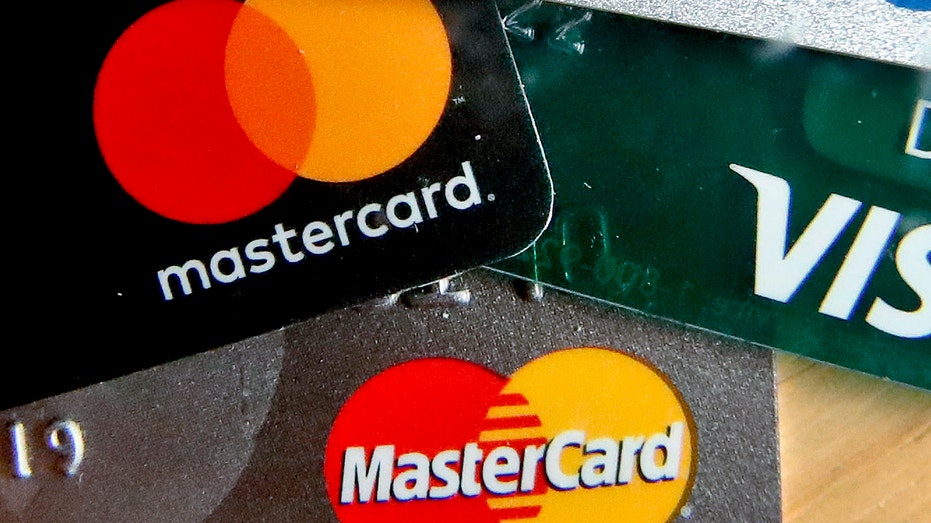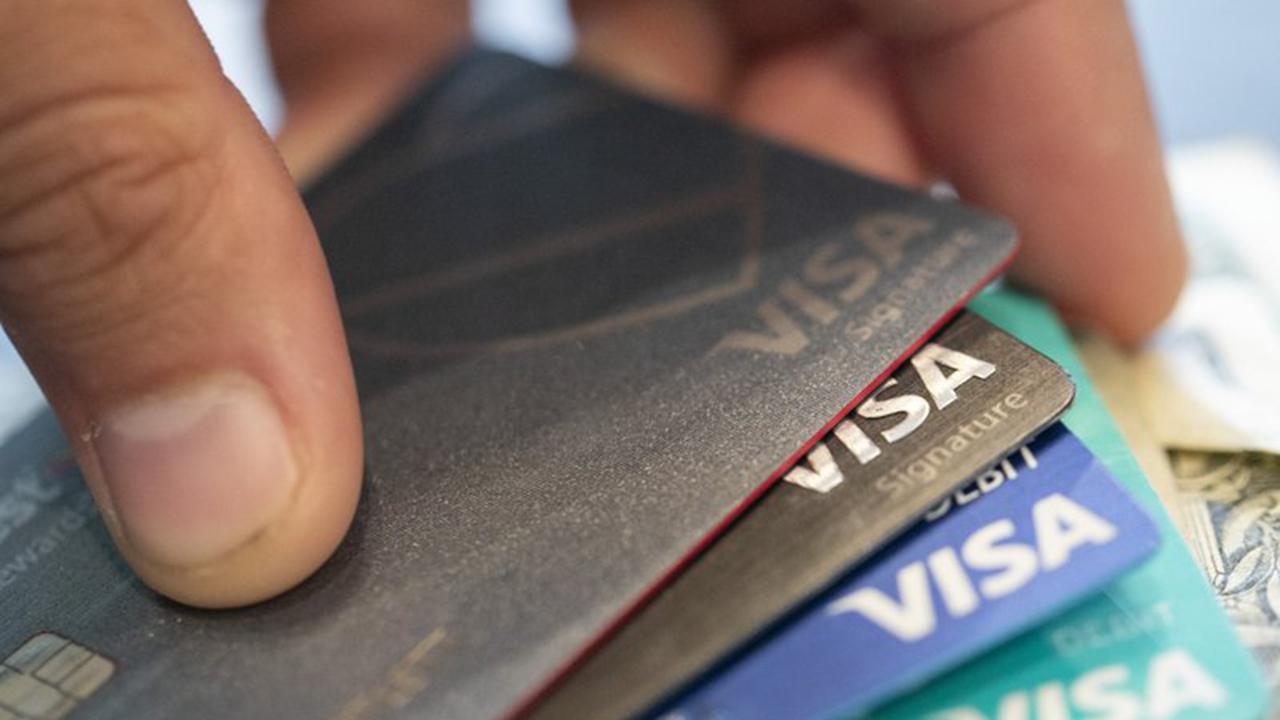Visa, Mastercard could raise swipe fees on many merchants: sources
Unclear if fee changes will be rolled out if coronavirus pandemic persists
Many small businesses could have another thing to worry about when they come out of a coronavirus coma: higher credit-card fees.
Visa Inc. and Mastercard Inc. had planned to raise swipe fees on many merchants this year, and the changes in some cases would be hardest on small businesses, according to people familiar with the situation. It is unclear if the fee changes, in the works for months, will be rolled out if the pandemic persists.
Already, the abrupt global slowdown has been most acute for the smallest businesses, which tend to operate on thinner profit margins and smaller cash reserves.
WHY CORONAVIRUS RELIEF TO SMALL BUSINESSES IS LAGGING
Visa's potential plans include increasing interchange fees associated with many consumer credit cards for many of the smallest retailers while lowering them for many of the largest ones, according to some of the people and a document reviewed by The Wall Street Journal. Many restaurants, both large and small, could also be affected.

(AP Photo/Keith Srakocic, File)
Visa and Mastercard are the largest U.S. card networks, and they tweak card fees on a continuing basis. The latest changes were decided before the pandemic spread in the U.S., according to the people, and the companies could shelve or delay the planned fee increases if the economy worsens. Both companies already delayed fee changes scheduled to kick in this month to July, citing the pandemic.
A Visa spokesperson said the company has "made no decisions regarding what, if any, changes will be made in the future in recognition of the dramatically changed environment in which all businesses are operating today."
A Mastercard spokesman didn't comment directly on the potential changes but said that delaying the planned new fees "allowed our customers and partners to focus on their core activities and manage through this unprecedented event."
Both companies pledged to support their clients. Visa and Mastercard also said this week they were committing $210 million and $250 million, respectively, to helping small businesses.
SMALL BUSINESS LOANS UNDER CORONAVIRUS STIMULUS BILL: WHAT APPLICANTS NEED TO KNOW
Swipe fees are known as interchange fees in industry parlance. Card networks such as Visa and Mastercard set the prices. Merchants pay the fees to credit-card issuers, usually banks, when consumers shop with the cards they issue. The fees can typically range from about 1% to 3% of card spending.
Merchants sometimes raise prices on consumers when their own fees are increased. Card-industry executives say interchange fees help cover costs for important functions such as preventing fraud.
Some large merchants, including Amazon.com Inc., Costco Wholesale Corp. and Walmart Inc., in recent years have negotiated their interchange fees down in part by leveraging their market reach, according to people familiar with the matter. Small merchants have less power to negotiate.
Mastercard's potential plans include increasing fees for small grocery stores this summer, while keeping fees steady for the larger supermarkets, according to some of the people. Visa's potential plans include keeping fees essentially unchanged for small grocery stores but lowering them for large supermarket chains this summer, according to some of the people and a document reviewed by the Journal.
Visa has had friction with large supermarkets over card fees. Kroger Co., for example, temporarily stopped accepting Visa credit cards at some of its units.
Merchants paid an estimated $53.6 billion in Visa and Mastercard credit-card interchange fees in 2019, up 8% from the year before and up 107% from 2012, according to the Nilson Report, an industry publication. Fee payments have risen as more people shop with credit cards, including generous rewards cards. The networks set higher fees for those rewards cards.
The potential changes are forecast to result in merchants paying an estimated net increase of $731 million a year to card issuers, according to CMSPI, a merchants' payments consulting firm.
Other fee changes could come for merchants regardless of size.
Visa also could change how it calculates fees for restaurants starting in October, according to some of the people and a document. Quick-service restaurants whose average purchase price is above $9 would pay more in interchange fees, according to CMSPI estimates.
Mastercard also could increase interchange fees when consumer credit cards are used for most in-store retail purchases, some of the people said. Mastercard might lower interchange fees for subway rides and other public transportation, these people said.
GET FOX BUSINESS ON THE GO BY CLICKING HERE
Jared Scheeler, chief executive of the Hub Convenience Stores, a small business comprising six gas stations, said his company paid nearly $400,000 last year in credit- and debit-card fees, including interchange fees.
Mr. Scheeler said the fees represented 2.12% of the Hub's total sales last year, up from 1.99% in 2018 and 1.93% in 2017. One reason, he said, are rewards credit cards.
CLICK HERE TO READ MORE ON FOX BUSINESS
"It is pretty discouraging as a business owner to see that much money going out," said Mr. Scheeler, who is also a board member at the National Association of Convenience Stores. "The only line items bigger than that are rent and payroll."




















